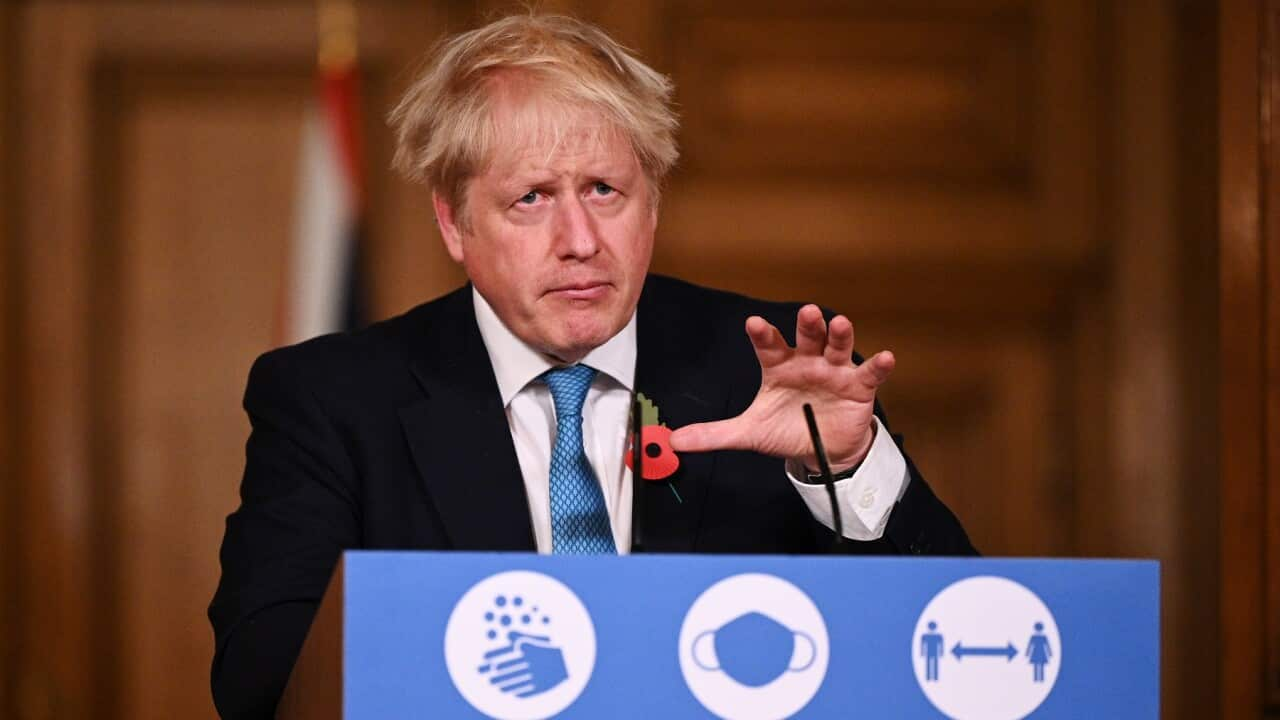British Prime Minister Boris Johnson set out new measures on Monday to replace a COVID-19 lockdown in England from 2 December, reinforcing a previous regional approach to try to reopen businesses where infection rates are lower.
Just over two weeks after Johnson introduced a national lockdown for England to try to tame a spiralling increase in new coronavirus cases, he said the measures had reduced COVID infection rates and would be eased on 2 December as promised.
Mr Johnson has been under pressure to scrap the lockdown from lawmakers in his Conservative Party, where many have threatened to vote against any new restrictions they consider overly damaging to the economy without more evidence of their effect in stemming infections.
“We are going to go back ... to a regional, tiered approach,” he told parliament virtually from his Downing Street office where he is self-isolating.
Trying to ease the concerns among sceptics within his party, he said the measures would run until the end of March when vaccines and wider testing might offer a way out of the crisis.
The cost of the pandemic was writ large when a plan for wider community testing and rapid testing of front-line health workers came in at seven billion pounds, taking the overall funding for test and trace to 22 billion pounds.
“This will be still a hard winter, Christmas cannot be normal and there is a long road to spring. But we have turned a corner and the escape route is in sight,” Mr Johnson said.
“We must hold out against the virus until testing and vaccines come to our rescue and reduce the need for restrictions.”
After his statement, as he was answering questions from lawmakers, his video-conference connection failed and health minister Matt Hancock had to take over. He later returned to answer questions from lawmakers.
But the message to his own party was clear: an appeal to vote in favour of the new measures next week to make sure hospitals can cope during winter, when demand traditionally increases.
Some are bound to criticise Tier 3 (very high alert) restrictions, which mean that bars, cafes and restaurants must remain shut except for takeaway services, and that households cannot mix except in public places outdoors.
But they might save their anger for when the various regions of England are allocated their tiers, ranging from the lowest at tier 1 to the highest at 3, on Thursday.
Share



